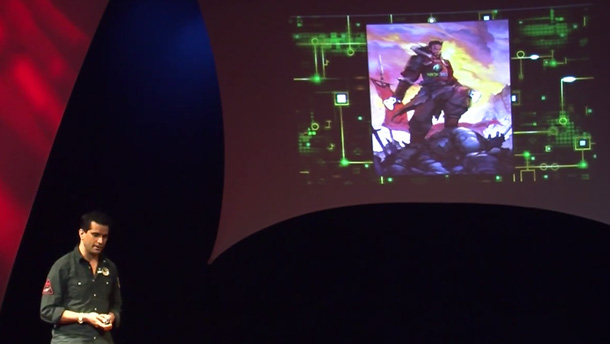
I’ve been really getting into music, you see. Of course, I’ve always been *in* to music, but recently I’ve started to acquaint myself a little more with that subterranean “hipster” stuff, the stuff that occupies its own little, albeit lively, sectors of the music industry. These “sectors”, as I think they are best called, are incredibly numerous and varied. So many of them, that one couldn’t be blamed for thinking that every other person on Earth is a musician, releasing albums every couple of years.
First comes the surprise — “Yowzers, look at this big ol’ world of music that I’ve unearthed! It goes for miles!”. Then comes the admiration for an industry that cares to nurture and endorse almost any new face that knocks on its door. But is that really the case? Perhaps the door is already wide open, and knocking is unnecessary. What I really see is an industry that operates on an open-house policy, an industry that believes in allowance, and subsequently, acceptance of whoever walks in. That policy makes for an industry that is immune to the sort of up and down weather that other industries experience. Sure, the music industry has seen a wealth of trends, eras, and the likes, but has it ever, at least recently, ever really been in a creative rut?
Is the music industry even really an industry at all? Or maybe there is an industry there, but it’s really just a natural growth that was born from the music world at large. And that’s an important distinction — there are worlds and there are industries, and the industries live inside the worlds.
So, if we want to apply that theory to, say, video games, it gets a little touchy, right? What overarching world is there to speak of with video games? It would seem that the industry *is* the world of video games, no? Of course, no one can discount that ever-booming indie movement that breeds thousands of new talents, talents that might not survive at the hands of studio executives. And we know all of this. It would seem, however, that most indie studios are still at the service of the big industry honchos, no matter their work methods and structure, regardless of their limitless imagination. A studio can be the most rag-tag and unrestrained as they get, but when the idea of shipping the game comes about, they’re knocking on the same doors as the AAA developers, most of the time. The real irk-inducer is when the the honchos ask who’s knocking. And what other answer is there, other than the one we’ve been conditioned — by the *industry* — to use? *”We’re the indies”, they’ll have to say.
But, is this really any different from the industry-part of the music world? No, but then again, yes. Listen here: the music industry is just that — an industry. And so is the game industry, of course. Even “indie musicians”, whatever that really means, sometimes feel that it’d be best to seek out a label, which grants them exposure, record deals, etc. Here’s what I’m getting at: it’s not so much the machinery of these two industries that are different from each other, it’s the attitude. Generally speaking, a lot of musicians don’t feel like they need to report to anybody’s office desk. In fact, musicians kind of do whatever they want, even when they aim to gain an audience. I wish that the game development scene at large would heed to this attitude, and somehow adopt it into their ways. Maybe someday, this game industry will be but a continent on one humongous *world* of video games.
And yeah, yeah, yeah. I know that these are different mediums that call for different means of production. Maybe it’s just silly to place these two on a ven diagram together in the first place. And besides, why does the game industry even need to replicate the mindset of the music world at all? Let me say this: I love the game industry, despite its bad marks. I love its energy, I love its quirks, and I certainly adore its production structure and methods. But among all these things is an attitude, one that demands restrictions, guidelines, and questions such as “Well, what genre is it?” There’s a set, strict framework that a great many people feel like they must abide to. It’s like high school, and if the game industry is high school, then the music scene must be…I dunno, not high school. Maybe the Wild West, or a jungle.
Someday it’d be nice to walk in to one of those independently-owned used games stores, sift through some old games, pick one out of the bunch and go “I wonder what that is? Looks kinda different,” and then pick out another game and maybe ask the same thing. An experience like this is not unlike one you could have at a record store today. Should the game industry adjust its attitude, this scenario could become a reality.
Image credit: Video Games Live


No Comments